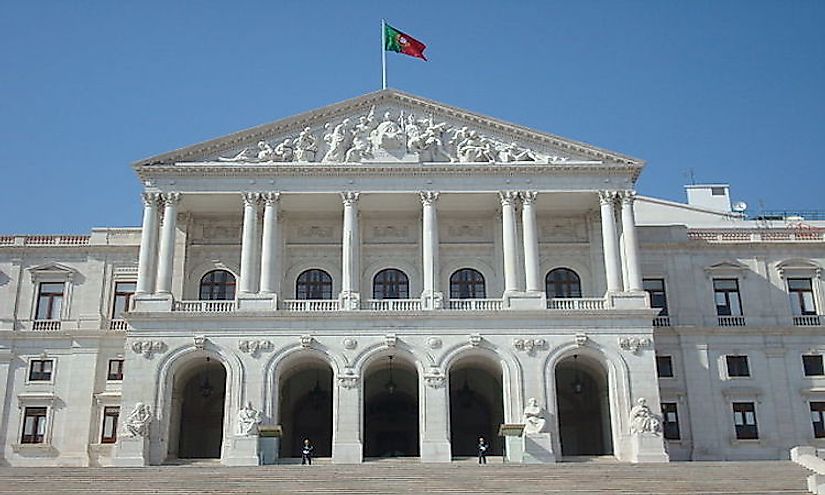What Is The Capital Of Portugal?

What Is The Capital Of Portugal?
Lisbon, the largest city and capital of Portugal, is also the westernmost capital city in continental Europe. Located along the Atlantic coast and boasting a Subtropical-Mediterranean climate, Lisbon is also one of the most visited European capitals. The city is home to about 27% of Portugal’s population and is the European Union’s 11th most populous urban area.
Where Is Portugal?
Portugal lies in the western region of the Iberian Peninsula in Southwestern Europe. Portugal only shares a land border with Spain to its east and north. To the country’s south and west is the Atlantic Ocean. Portugal also lays claim to the Azores Islands, which consists of nine islands in the Atlantic Ocean. The country sits on 92,090 km2, and while the southern region consists of low-lying plains, the northern area is mountainous.
What Type Of Government Does Portugal Have?
The government of Portugal is a semi-presidential republic. The 1976 constitution provides the framework for the country’s government, where the president is Portugal’s head of state and is elected directly for a five-year term. Among the Presidential duties are choosing the Prime Minister, serving as the Commander-in-Chief of the Armed Forces, and convening or dismissing the Parliament. The government is formed by the Prime Minister upon invitation from the President. The Prime Minister appoints the council of ministers who are responsible for their individual ministries. The Prime Minister coordinates ministerial activities and directs government’s actions. The Assembly of the Republic is Portugal’s Parliament, and it consists of 230 elected members who represent the citizens. The government is answerable to the President, Assembly of the Republic, and the courts.
What Is The Capital City Of Portugal And Where Is It Located?
Lisbon is the official capital of Portugal. The city is located along the Atlantic Coast on the northern bank of the Tagus River. The city sits on seven hills, and it prides in a 2.8 million metropolitan population to become the largest city in the country.
History Of The Capital City Of Portugal
Lisbon is one of the oldest cities in the world, and it boasts a long and rich history. According to Legend, Lisbon was founded by the ancient Greek warrior Odysseus, who is said to have settled there after being enchanted by the region. Before Roman occupation in the 2nd century, Lisbon was home to Phoenicians and Celtic tribes.
The Romans established the city as one of the most significant cities in the Iberian Peninsular after renaming it, Felicitas Julia. In 714AD, North African Moors occupied the city, fortified it and renamed it Lissabona. The Moors were eventually driven out after 400 years by Christian fighters.
Lisbon became the center of a vast empire after Vasco da Gama’s discovery of a sea route to India. From the 15th century, Lisbon was an important trading, cultural, and architectural center. The city’s prosperity was however destroyed in a 1755 earthquake. Rebuilt by Marques de Pombal, the city was occupied in 1807 by Napoleon Bonaparte. The 19th and 20th centuries marked a period of rapid expansion and industrial development for Lisbon to become the modern city it is today.
Present-Day Role Of The City As The Capital City Of Portugal
Lisbon is the commercial, tourism, the administrative and cultural center of Portugal. As an economic center, Lisbon is home to the country’s largest seaport, the bulk of multinational headquarters and multiple industries. Being the country’s administrative center, Lisbon is the seat of Portugal’s Government and home to the President’s residence.
Lisbon is also a transportation center with a network of highways, motorways, bridges, metro system and the Lisbon Portela Airport, which is the country’s leading international airport. As a tourist destination, Lisbon is renowned for its cuisine, music, bullfighting, fascinating streets, historic landmarks, beaches, and nightlife.







